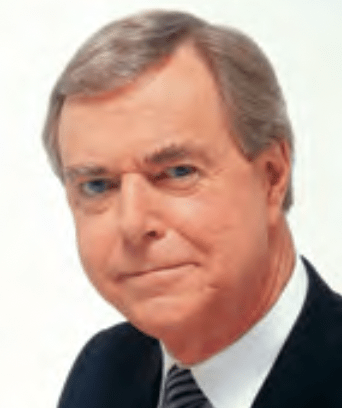Mulroney’s Passing and the Progressive Conservative Dream

By Don Newman
March 11, 2024
The death of former Prime Minister Brian Mulroney on February 29th marked the passing of an era. It also marked the passing of a dream.
In Mulroney’s era in domestic and international leadership, politics was a more civil affair, when hard fought election campaigns, bitter debates and cantankerous Question Periods were conducted with at least a modicum of civility between the participants in all of the parties involved.
The dream that has passed was the vision people who are remnants of the old Progressive Conservative Party have been carrying since 1993, when the party went from Government to just two House of Commons seats, and ultimately to oblivion. That dream was that somehow the PC party, or at least its values, policies, civility and other qualities would re-emerge in the current day Conservative Party.
Mulroney died on February 29th. He was almost eighty-five and had been in declining health for some time. But as long as he was alive, he was the symbol of what the Progressive Conservative Party had been. Mulroney led a powerful national government with dramatic domestic and foreign policies that had helped shape Canada.
The dream continued to resonate in Progressive Conservative nostalgia as long as Mulroney was alive to personify it, even though officially that dream formally died on September 10, 2022. That’s when the current leader, Pierre Poilievre, roundly defeated Jean Charest for the Conservative Party leadership.
Poilievre had been a second-tier cabinet minister in the government of Stephen Harper. More a parliamentary attack dog than someone making policy around the cabinet table. Charest had been a mid-level cabinet minister in Brian Mulroney’s later governments, then a leader of the Progressive Conservatives and finally the Premier of Quebec. In other words, he was an established political figure with a record of accomplishment and one of two Progressive Conservative survivors of the 1993 federal election. To many PCs, he was holding the torch of what had been and the hopes of what could be again.
But when the results were announced on a Saturday evening in Ottawa, the man who had been a political aide and junior cabinet minister took just over 68% of the leadership votes. The man who had a much more distinguished career in both the private and public sector took sixteen per cent. If there was ever a signal that the Tory dream was dead, that was it.
The dream did not die when the Canadian Alliance, the renamed Reform Party, and the Progressive Conservatives joined in December of 2003. Even though the Reform/Alliance combination had a decade of political success and the PCs had a decade of steady decline, many members of the latter took solace in the comfortable idea that the joining together was somehow a merger of equals.
True, the name of the new arrangement was the Conservative Party. But in truth what really happened was the absorption of the PCs by the descendants of the Reform Party.
That was never more apparent than after the Conservative Party and Stephen Harper took power following the 2006 General Election. Jim Prentice quit the government to become a bank executive, then Premier of Alberta. Peter MacKay had three high-profile cabinet jobs but quit the government before the 2015 election.
Mulroney had originally opposed the Progressive Conservatives and the Reform Party getting together. But after three elections of the parties splitting the conservative vote, he endorsed the idea. Later, he would realize that had been a mistake, that his old party had disappeared. By then it was too late.
The dream of rescuing Progressive Conservative values took a leap of hope among PC supporters after the 2015 defeat of the Harper Government by Justin Trudeau and Harper’s immediate resignation. A few weeks later at a dinner I attended at Albany Club, the Toronto home of all things Conservative, Mulroney was the guest speaker and the talk was all of “getting the party back.” However, three leadership races since then have proven that is not going to happen. The most recent race providing the most convincing evidence.
Now Brian Mulroney is gone. So is the Progressive Conservative dream.
Contributing Writer and columnist Don Newman, an Officer of the Order of Canada and lifetime member of the Parliamentary Press Gallery, is Executive Vice President of Rubicon Strategy, based in Ottawa.
